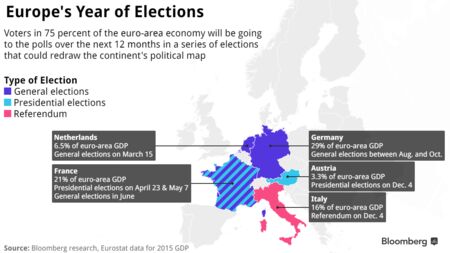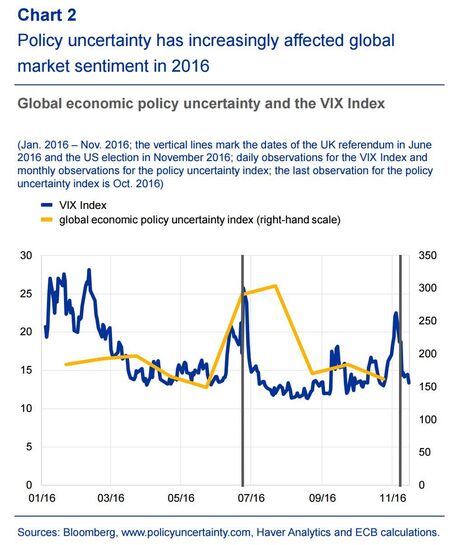Brexit Headlines
COMMENTARY / WORLD NOV 30, 2016
BY MICHAEL SPENCE
Multilateralism is giving way to national self-interest. As inequality across countries has
declined, inequality within countries has surged — to the point that the reversal of priorities
BUSINESS / CORPORATENOV 28, 2016
BY ALEX MORALES
Jaguar Land Rover Ltd. said it intends to build electric cars in the U.K. if the government can overcome shortfalls in available energy and infrastructure investment, potentially giving Britain a manufacturing boost as it leaves the European Union. Jaguar Land Rover's expression of interest in ...
BUSINESSNOV 24, 2016
BY WILLIAM HOLLINGWORTH
Despite Nissan Motor Co.'s decision to keep automotive production in Britain after its exit from the European Union, industry experts have mixed views over whether other Japanese carmakers will follow suit. Experts interviewed are unsure how freely British firms will be able to trade in ...
WORLD / CRIME & LEGALNOV 24, 2016
A loner obsessed with Nazis and extreme right-wing ideology was sentenced on Wednesday to spend the rest of his life in prison for murdering lawmaker Jo Cox in a frenzied street attack that stunned Britain a week before the European Union referendum. Armed with a ...
WORLD / POLITICSNOV 13, 2016
Leading Brexit campaigner and U.K. Independence Party leader Nigel Farage visited U.S. President-elect Donald Trump at his home in New York City on Saturday and a Trump aide said the pair had a "very productive" meeting. "We're just tourists!" Farage joked with reporters after he ...
COMMENTARY / JAPAN NOV 7, 2016
BY HUGH CORTAZZI
As Britain gears up for Brexit, the government is trying hard to keep Japanese
ASIA PACIFIC / POLITICSNOV 7, 2016
Britain should not wait until it leaves the European Union to develop deeper trade ties with India, Prime Minister Theresa May said in New Delhi on Monday, promising to ease access for Indian business travelers but not for its students. Making her first visit to ...
WORLD / POLITICS | ANALYSISNOV 4, 2016
The century-old Portland stone building of the U.K.'s Supreme Court stands on London's Parliament Square, separated from the historic structures housing lawmakers and religious leaders by about 400 feet. The top court was founded seven years ago to ensure that politics and the judiciary never ...
BUSINESS NOV 1, 2016
BY BEN HIRSCHLER AND SARAH YOUNG
Britain's pharmaceutical and aerospace industries, both big exporters, are stepping
up pressure on the government for assurances about their future after last week's
post-Brexit deal with carmaker Nissan. The two sectors, which have been talking
BUSINESS / ECONOMYNOV 1, 2016
BY ROBERT HUTTON
Japan warned British Prime Minister Theresa May that her government must improve its communications about Brexit, or risk endangering inward investment in the U.K. Days after May pulled out the stops to persuade Nissan Motor Co. to continue building cars at its plant in Sunderland, ...








